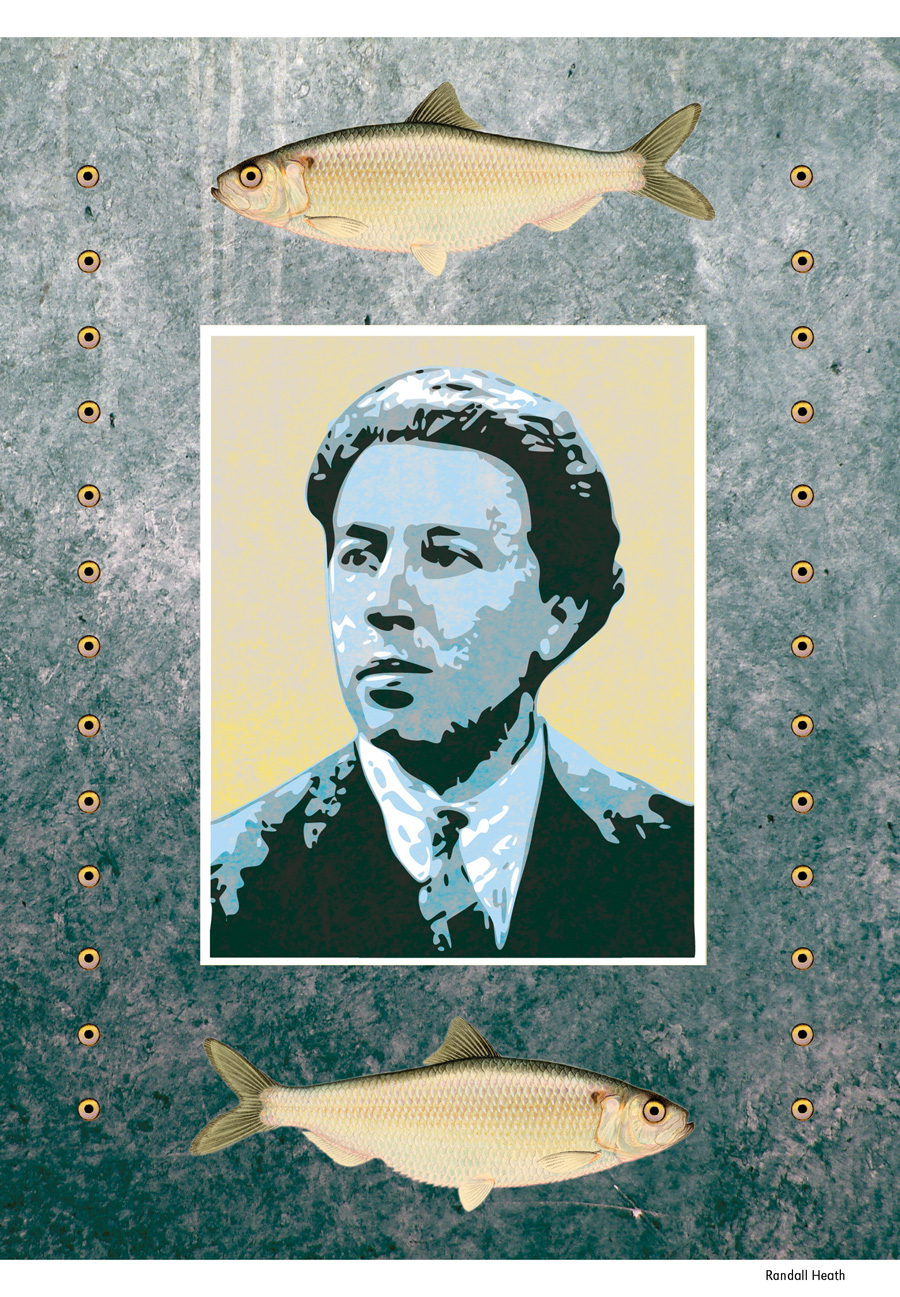In a Dark Alley with Mark Polizzotti
Poet, translator, and nonfiction writer Mark Polizzotti was given special access to André Breton's unpublished papers and correspondence while doing research for his biography Revolution of the Mind: The Life of André Breton. Among his many translations are Breton's Anthology of Black Humor and a selection of Breton's poems (published by UC Press, 2003). Polizzotti is also author of The New Life: Poems and a monograph on Bob Dylan's Highway 61 Revisited. We spoke with him in the offices of the Boston Museum of Fine Arts, where he works as publisher of MFA Publications.

conduit: André Breton is credited with coining the phrase "black humor." How is it different from "ha-ha" humor? Or how does the vernacular notion of black humor differ from Breton's, if it does?
mark polizzotti: Well, that's a good question and I've been grappling with it myself. Breton's answer is that until he published his anthology, the phrase "black humor," if it was used at all, mainly referred to what he calls "a form of banter supposedly characteristic of 'Negroes.'" It was more a racial characterization than a philosophical one. The idea of black humor in the sense he means it really came from two things, both having to do with World War I. One was his discovery, at the war's outset, of Rimbaud—especially Rimbaud's letters, which were only then coming to light. You have to remember that in 1914, Rimbaud was still a relatively little-known poet. Most of the literary establishment looked upon him with great suspicion, as this little punk. When Breton discovered Rimbaud's letters from the time of the Franco-Prussian War, France's previous major conflict, he found a kindred spirit. Rimbaud's attitude toward the war was extremely sardonic, highly dismissive of the patriotic, rah-rah attitude that he saw all around him, the knee-jerk anti-Prussian sentiment. And now here France was again at war with Germany, and the same anti-German rhetoric was being trotted out. Breton was actually a great admirer of German culture. He felt an affinity with the German Romantics and other German thinkers that lasted him throughout his life, and that even survived the Second World War, despite his hatred of fascism. He was also staunchly anti-war, in general, and anti-nationalist. So Rimbaud's humorously defeatist attitude from nearly fifty years earlier struck a very resonant and relevant chord with him, which resurfaced later in the notion of black humor.
The second element of black humor came after Breton had been drafted and was working as a medical orderly for the army. He met a young soldier named Jacques Vaché, who seemed to embody exactly that same sarcastic attitude as Rimbaud, very casual and nonchalant about the war going on around him. Vaché was utterly unimpressed by any of the sacred cows one could parade before him, whether the mainstream sacred cows of duty, honor, and fatherland, or even the supposedly more advanced ones of avant-garde art and literature. Breton, by this time, had discovered writers such as Apollinaire and Jarry, and he assumed Vaché would share his enthusiasm. But Vaché wanted no part of it. He really couldn't care less. He affected an equal opportunity skepticism, more blasé than thou, and Breton found this to be a true revelation, because it challenged all of his enthusiasms and accepted values, even the supposedly iconoclastic ones.
So, to get back to your question: What distinguishes black humor from regular humor? Breton makes the point in his introduction to the anthology that black humor is the "mortal enemy of sentimentality," underscoring the fact that black humor, by its nature, has a very cold feel to it, something even rather grim. It's not necessarily funny in the sense of laugh-provoking—while some of these pieces can make you laugh, a surprising number of them don't. But there is something disturbingly thrilling about them, and strangely liberating. And at the same time, something glacial, even cruel. There's very little sentiment involved. Several of the pieces take as their subject matter the scientific examination of things we normally associate with emotion. Charles Cros—who was a scientist and inventor—has a piece in the book called "The Science of Love." Another piece, by Alphonse Allais—which is absolutely heartless, but in this case funny as hell—meticulously details how he went about torturing his poor neighbor to death by pranks simply because she annoyed him. She gets "punked," a good hundred years before Ashton Kutcher crawled out of the woodwork.
What holds most of these selections together, whether funny or not, is a resistance to sentiment or empathy toward other human beings. They're very self-centered in a way, impervious to any notion of responsibility, or of the other things that hold society together. By definition they're not to everyone's taste. It is, in the fullest sense, anti-social humor, and that attitude mirrors what Breton had found with Vaché.
In addition, Vaché contributed the concept of what he called "umor," without an "h," which he defined for Breton as "the theatrical (and joyless) pointlessness of everything." And that definition pretty much hits it on the head. There's a sense of spectacle in black humor. It's not quietly funny, you're not simply going about your business. You are staging a kind of show. And at the same time there's something completely futile about it, and it's in celebrating that futility, that pointlessness, that we begin penetrating to the heart of what black humor is.

